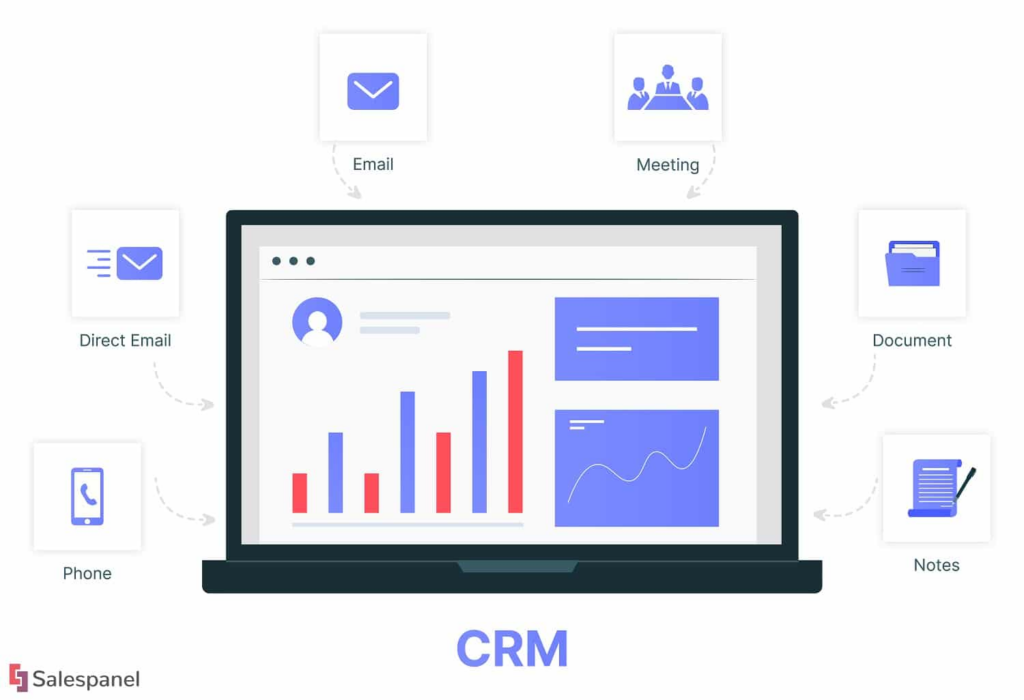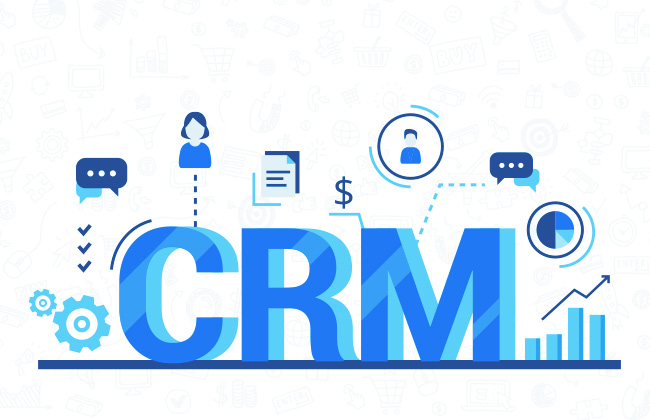In today’s competitive business landscape, building and maintaining strong relationships with clients is crucial for sustained growth. Customer Relationship Management (CRM) systems have emerged as essential tools for managing these relationships, streamlining business processes, and enhancing customer satisfaction. However, the success of a CRM initiative depends on more than just choosing the right software; it requires expert CRM consulting, setup, and services 2024.
This comprehensive guide will walk you through the importance of CRM systems, the benefits of expert CRM consulting, the key steps in CRM setup, and the value of ongoing CRM services. By the end of this post, you’ll understand why partnering with a CRM expert is crucial for maximizing your business’s potential.
The Importance of CRM in Modern Business
Customer Relationship Management (CRM) is no longer a luxury; it’s a necessity. A CRM system allows businesses to centralize customer data, track interactions, automate processes, and gain insights into customer behavior. Whether you’re a small business or a large enterprise, a well-implemented CRM system can transform how you manage your customer relationships.

Benefits of CRM Systems
- Improved Customer Satisfaction: By having all customer information in one place, businesses can respond to customer inquiries more efficiently, leading to higher satisfaction rates.
- Enhanced Sales Performance: CRM systems provide sales teams with the tools to track leads, manage pipelines, and close deals more effectively.
- Better Data Management: Centralized data storage reduces the risk of data loss and ensures that customer information is always up-to-date.
- Increased Productivity: Automation of routine tasks, such as follow-up emails and data entry, frees up time for employees to focus on more strategic activities.
- Data-Driven Decision Making: CRM systems offer robust analytics and reporting features, enabling businesses to make informed decisions based on real-time data.
Why CRM Consulting is Essential
Implementing a CRM system is not just about choosing software; it’s about aligning the system with your business processes and goals. This is where CRM consulting comes into play. A CRM consultant brings expertise in understanding your business’s unique needs and customizing the CRM system accordingly.
Key Benefits of CRM Consulting
- Customized Solutions: A CRM consultant will assess your business processes and recommend a CRM system tailored to your specific needs, ensuring you get the most out of your investment.
- Seamless Integration: A consultant will ensure that the CRM system integrates smoothly with your existing tools and software, such as ERP systems, marketing automation platforms, and email services.
- Best Practices Implementation: CRM consultants are well-versed in industry best practices, ensuring that your CRM setup adheres to the latest standards and technologies.
- Training and Support: A good consultant will provide training for your team, ensuring they understand how to use the CRM system effectively.
- Ongoing Optimization: CRM consulting is not a one-time service. Consultants can offer ongoing support to optimize your CRM system as your business evolves.
The CRM Setup Process: Key Steps
Setting up a CRM system involves several critical steps, each requiring careful planning and execution. Here’s a breakdown of the key stages in the CRM setup process:
1. Needs Assessment
Before choosing a CRM system, it’s essential to conduct a thorough needs assessment. This involves analyzing your current processes, identifying pain points, and setting clear objectives for what you want to achieve with the CRM system.
- Key Questions to Consider:
- What are your business goals?
- Who will use the CRM system, and what are their needs?
- What are the existing challenges in your customer management processes?
- How will the CRM system integrate with your other tools?
2. Vendor Selection
With countless CRM systems available in the market, choosing the right one can be daunting. A CRM consultant can help you evaluate different options based on factors such as features, scalability, ease of use, and cost.
- Popular CRM Systems:
- Salesforce: Known for its extensive features and customization options.
- HubSpot: A user-friendly option, especially popular with small and medium-sized businesses.
- Microsoft Dynamics 365: Offers robust integration with other Microsoft products.
- Zoho CRM: A cost-effective solution with a wide range of features.
3. Data Migration
Migrating existing customer data to a new CRM system is a critical step that requires careful planning. Data quality is paramount, so it’s essential to clean and organize your data before migration.
- Key Considerations:
- Data mapping: Ensure that data fields in your existing system align with the new CRM system.
- Data cleaning: Remove duplicates, outdated information, and errors from your data.
- Data backup: Always back up your data before migration to prevent data loss.
4. System Configuration
Once the CRM system is selected and data is migrated, the next step is system configuration. This involves setting up user roles, customizing fields, automating workflows, and integrating the CRM with other business tools.
- Customizing the CRM:
- Tailor the CRM’s interface to match your business processes.
- Set up custom fields to capture the data most relevant to your business.
- Create automated workflows to streamline tasks such as lead assignment and follow-up emails.
5. User Training
A CRM system is only as good as the people using it. Training is crucial to ensure that your team can effectively use the system. Training sessions should be tailored to different user roles, ensuring that everyone understands how the CRM system benefits their specific tasks.
- Training Best Practices:
- Provide hands-on training sessions for key features.
- Offer ongoing support through tutorials, FAQs, and help desks.
- Encourage user feedback to continuously improve the system’s usability.
6. Testing and Go-Live
Before fully deploying the CRM system, it’s essential to conduct thorough testing. This includes testing all functionalities, integrations, and data accuracy to ensure everything works as expected. Once testing is complete, the system can go live.
- Go-Live Checklist:
- Ensure all users have access and are trained.
- Confirm that all data is correctly migrated and mapped.
- Test all automated workflows and integrations.
- Monitor the system closely after go-live to address any issues promptly.
Ongoing CRM Services: Ensuring Long-Term Success
The work doesn’t stop once your CRM system is up and running. To ensure long-term success, ongoing CRM services are essential. These services include regular maintenance, updates, and optimization to keep the system aligned with your evolving business needs.
1. System Maintenance
Regular system maintenance is crucial to ensure that your CRM system remains secure, efficient, and up-to-date. This includes installing software updates, monitoring system performance, and ensuring data security.
- Maintenance Tasks:
- Update the CRM software to the latest version.
- Monitor system performance and address any technical issues.
- Regularly review user permissions and security settings.
2. Data Management
As your business grows, so will your data. Ongoing data management is essential to maintain data quality and ensure that your CRM system continues to provide accurate insights.
- Data Management Strategies:
- Regularly clean and update your data to remove inaccuracies.
- Implement data governance policies to ensure data integrity.
- Use data analytics to gain insights into customer behavior and trends.
3. System Optimization
Your business needs will change over time, and your CRM system should adapt accordingly. Ongoing optimization involves tweaking the system to meet new requirements, adding new features, and integrating additional tools.
- Optimization Techniques:
- Conduct regular system audits to identify areas for improvement.
- Customize the CRM system as your business processes evolve.
- Integrate new tools, such as AI-driven analytics or marketing automation platforms.
4. User Support and Training
Even after the initial training, ongoing support is essential to ensure that users continue to use the CRM system effectively. This includes providing helpdesk support, offering refresher training sessions, and updating users on new features.
- Support Services:
- Offer a helpdesk for technical support and troubleshooting.
- Provide ongoing training to introduce new features and best practices.
- Gather user feedback to continuously improve the CRM system.
Conclusion: The Value of Expert CRM Consulting, Setup, and Services

Investing in a CRM system is a significant step towards improving your business’s customer relationship management. However, to maximize the benefits of a CRM system, it’s crucial to work with experts who can guide you through the process. From consulting and setup to ongoing services, CRM experts ensure that your system is tailored to your business needs, optimized for performance, and supported for long-term success.
By partnering with a CRM consulting firm, you gain access to a wealth of knowledge and experience, ensuring that your CRM system becomes a powerful tool for driving business growth. Don’t leave your CRM implementation to chance—invest in professional services to unlock the full potential of your CRM system and achieve your business goals.




